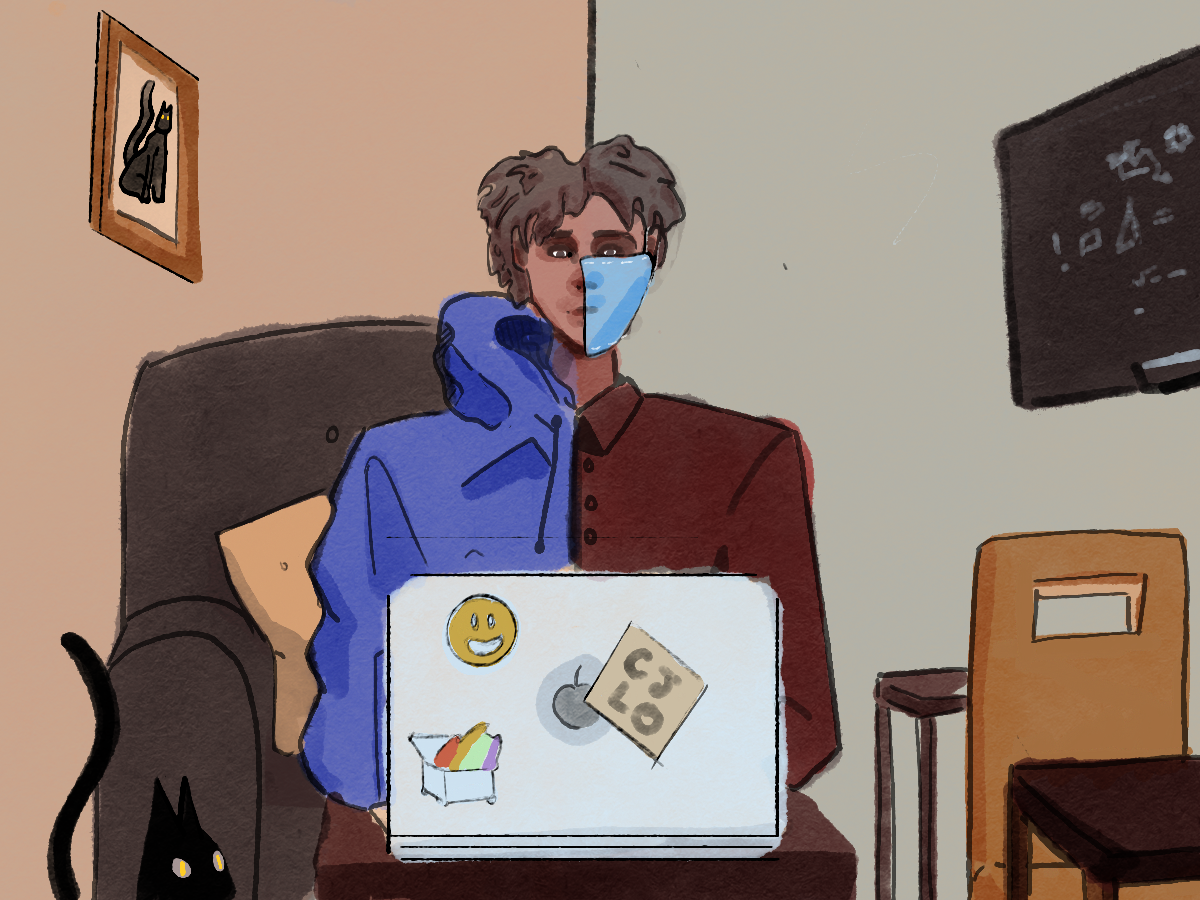Concordia’s hybrid school system leaves international students frustrated
As students return to Concordia with a new hybrid system of online and in-person classes, international students are feeling like they have been left in the dust.
In March, the university sent an email encouraging international students to return to school for September. It was anticipated that the provincial government would want students to be physically in Quebec for the new semester.
“It really felt like Concordia just completely left us behind in the equation,” said Jane Doe*, an international student from Kentucky who is majoring in environmental geography. “They were just so eager to be back in person, whether it was Concordia or Quebec, I don’t know. But we were totally left out.”
Doe explained that because of border closures, many international students are unable to fly to Canada in time for the start of the fall semester. Concordia University told international students that they have until Nov. 8 to arrive in the country. The Concordia website states that if an international student does not have their visa approved by Nov. 8, which is the DISC deadline, their registration will be removed and tuition refunded.
According to the Government of Canada’s website, international travel into Canada is now allowed only if the person is symptom free and has received the full series of an accepted vaccine. But International students from Morocco and India won’t be able to fly into Canada until Sept. 29, with possibility for a renewal of the ban.
“I was so pissed because I thought for sure that they [Concordia] wouldn’t do that so soon,” Doe said. She explained that she assumed Concordia would continue online school into the new school year. During the past year online Doe moved back to the U.S., got an apartment, a job and expected that her last semester at Concordia would be online.
Doe is currently paying for rent for her apartment in Kentucky and in Montreal, and had to quit her job in Kentucky. According to her, international students, specifically from the U.S., cannot apply for a loan if they are attending online school.
“I had slowly moved into my own place, totally moved on from this part of my life [in Montreal] and then I was told I had to come back,” said Doe.
Doe is currently not in Canada as a student but is in the country on a tourist visa, which means in three months she will have to return to the U.S. and return again to Canada as a tourist. Doe said that she applied for her study permit extension five months ago, but has received no update even though the process is supposed to take six to eight weeks. Despite calling, she still hasn’t received a response. She explained that this is caused by the massive amount of international students also applying for a permit extension.
“There’s a lot of students that I’ve heard from that are really concerned about this because they might not get their documents in time,” said Hannah Jamet-Lange, a French international student and the Concordia Student Union’s (CSU) academic & advocacy coordinator.
Jamet-Lange explained that if international students are unable to get their documents in before Nov. 8 they are disenrolled and the student can take a leave of absence for the semester. But Jamet-Lange stated that taking semesters off can impact an international student’s visa and work permits.
“We’ve been advocating a lot for a hybrid system just because it will make it easier for students that are still abroad to still access their classes,” Jamet-Lange said, who explained that the CSU released an open letter to Concordia in August, which laid out concerns about the unclear reopening plan, and gave recommendations on how to best accommodate students.
One of the recommendations was recordings of all classes, both those held in-person and those held online to ensure accessibility. The letter further stated that this includes but is not limited to, “students who are self-isolating and international students who are unable to enter Montreal due to travel bans and/or delays in immigration procedures.”
Vannina Maestracci, Concordia university spokesperson, stated that all universities have to follow eligibility criteria and regulations for study permits.
“The request to be in Montreal is linked to their study permit and immigration status, not to the delivery format of their courses,” stated Maestracci, who explained that the provincial and federal government are allowing international students who are having difficulties traveling to Canada the ability to start their semester online.
She explained that Concordia has offered international students until the beginning of November to travel to Canada while letting them start their classes remotely.
Graphic courtesy of James Fay
*Granted temporary anonymity for external circumstances.
